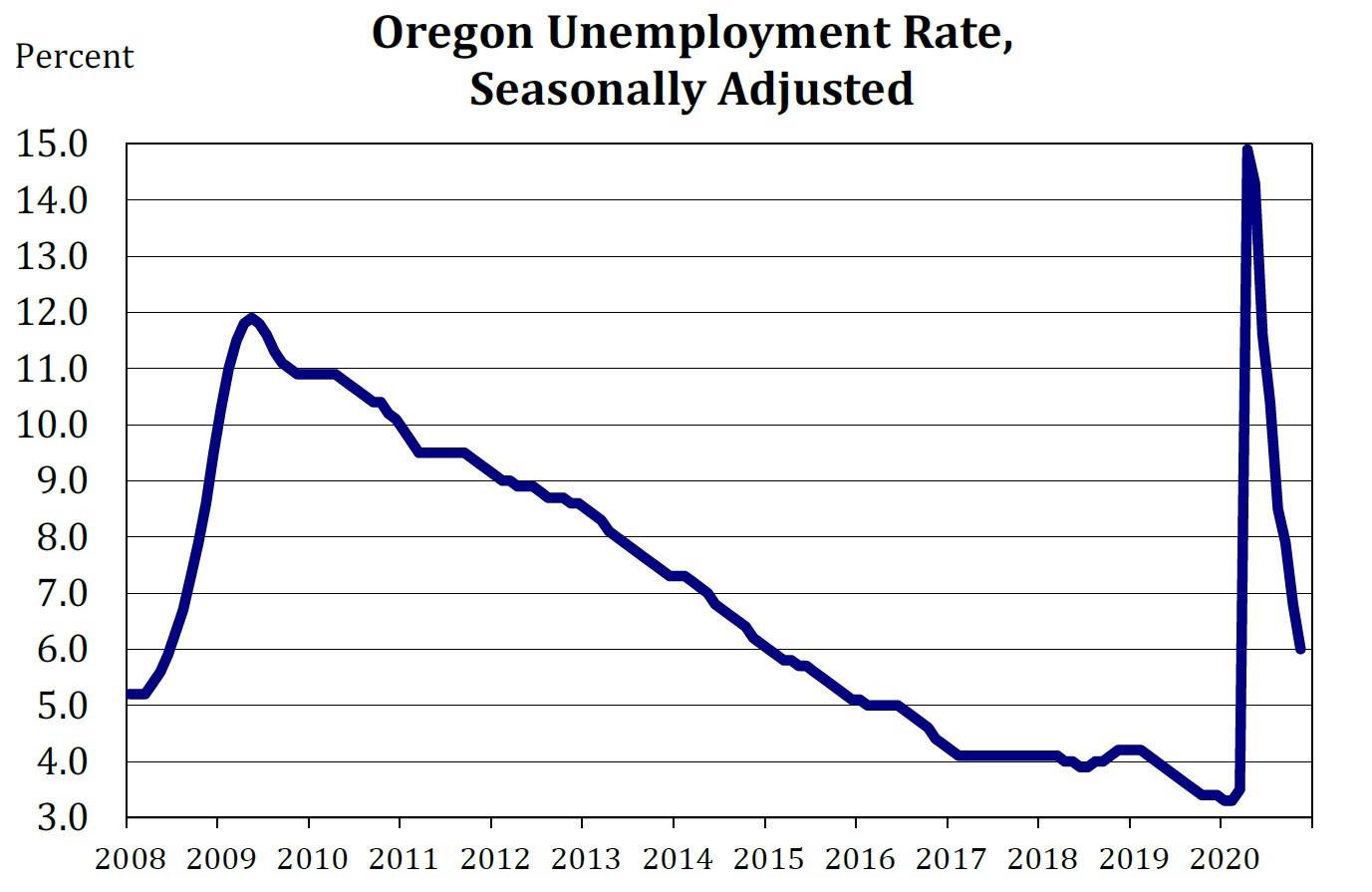
On this day, September 1, 1836, Protestant missionary Dr. Marcus Whitman led a party to Oregon. His wife, Narcissa, was one of the first white women to travel the Oregon Trail.
 Post an Event
Post an Event
| Benton County Republicans’ Private Fundraising Event, “Bent-on Boots and Bling” with Trey Taylor |
| Friday, September 5, 2025 at 5:00 pm |
| Featuring Trey Taylor
Music Private Event
Friday, September 5, 2025 5:00-5:30 pm VIP Reception
5:30-8:00 pm Heavy Appetizers,
Auction, Concert
Red: $750 VIP Reception
Front Row Table Sponsor
White: $500 Table Sponsor
Blue: $50 per person
Limited Seating. Get Yours Now!!!
Support Local
Dress up: Bling, Cowboy, Patriotic Benton County Republican
FUNDRAISER
www.BentonGOP.org
Get your tickets today at:
https://www.bentongop.org/event-details/benton-county-republicans-fundraiser/form
About Trey:
Trey is the youngest African American Man in Country Music History. The Denver Post wrote
"It's impossible to miss his enthusiasm. With a fondness for cowboy boots, gaudy colors and dazzling jewelry, Trey Taylor could stand toe to toe with any of the Pop, Country or even Rap
contemporaries of his generation.“ |
| Trysting Tree Golf Club, 34028 NE Electric Rd., Corvallis |
Helps industry create jobs
The Strategic Investment Program run by the Oregon Business Development Department offers a 15-year property tax exemption on a portion of
large capital investments. The program was created in the 1990s to induce large, capital-intensive facilities to locate and grow anywhere in Oregon.
To qualify, projects must serve a "traded sector" industry. Oregon law defines "traded sector" as one in which "member firms sell their goods or services into markets for which national or international competition exists."
The project's cost must be at least $25 million in a rural area or $100 million otherwise. But as a practical matter to benefit from the program, the overall investment will need to be considerably bigger. The actual exemption is on property value in excess of a taxable portion, which starts at $100 million for all urban projects, while in rural areas:
| Total Investment Costs | Initial Taxable Portion Amount |
| Not more than $500 million | $25,000,000 |
| Between $0.5 and $1.0 billion | $50,000,000 |
| Greater than $1.0 billion | $100,000,000 |
A rural area must be located entirely outside urban growth boundary of a city with a population of 40,000 or more at the time of state SIP application or in a Rural Strategic Investment Zone designated before October 5, 2015. Taxable portion is based on property's real market value and grows 3% per year.
There are two options for an SIP project to be approved:
- Ad hoc approval. The county holds a public hearing and negotiates an agreement between the business and county and city (if applicable).
- Strategic Investment Zone. The zones are designed to provide a more streamlined local process. At any time, a county (and city) may submit a request through Business Oregon for the Business Oregon Commission to designate a Strategic Investment Zone.
Community Service Fee
Companies must also pay the respective county a community service fee as set by law. The fee is contained in the agreement with the business, which may include additional requirements on the business. The county must also sign a separate agreement with other local governments for distributing the fee.
A D V E R T I S E M E N T

A D V E R T I S E M E N T
For any SIP project that is exempt in the prior tax year, the business must submit a report to Business Oregon detailing its employment and payroll. The report is used to evaluate the program's performance and provide estimates of state personal income tax revenue that may be shared with local governments.
Supporters of the program point out that other states have similar programs and will poach the cream-of-the-crop companies without it. They also point to the jobs and positive secondary economic effects of the program. Critics say that it uses taxpayer funds -- any tax abatement is essentially a general fund loss -- that targets only large and successful companies. Additionally, it may not make sense to have a large monopoly utility company -- Portland General Electric, for instance -- using taxpayer backed money for economic development.
--Staff Reports| Post Date: 2020-12-28 20:08:02 | Last Update: 2020-12-29 08:31:23 |
Insurers will continue to pay for coverage for telehealth services
The State of Oregon has reached an agreement with several health insurance companies to continue providing expanded telehealth options through at least June 30, 2021. Industry experts say that much like COVID-19 has left a permanent impression on "work from home," it is leaving a permanent impression on the delivery of health care via computer, or telehealth.
The agreement follows
guidance issued by the Department of Consumer and Business Services and the Oregon Health Authority in late March requiring health insurance plans to provide in-network coverage for multiple telehealth platforms.
In June 2020, the state reached agreement with health insurance companies to continue providing expanded telehealth options, including payment to providers at the same rate as an in-person visit, through Dec. 31. This new agreement means health insurance companies will continue to provide coverage for expanded telehealth services and pay for these services at the rates they established during the COVID-19 pandemic.
“It is vital for Oregonians to continue to use telehealth services to limit physical contact during this public health emergency,†said Oregon Insurance Commissioner and Department of Consumer and Business Services Director Andrew Stolfi. “Telehealth allows for Oregonians to get important care, often from the comfort of their home. I want to thank the insurance carriers that have joined us in this agreement to provide expanded telehealth services and pay parity for Oregonians.â€
The following insurance companies have agreed to provide expanded telehealth services through June 30, 2021:
- Cambia
- Health Net
- Kaiser Permanente
- Moda
- PacificSource
- Providence
- Regence
- Samaritan
- UnitedHealthcare
In addition to these companies, the Oregon Health Plan will continue to offer pay parity and other allowances for many telehealth services, offering the same rate as an in-person visit for physical health services, behavioral health services, and some dental and long-term care services.
A D V E R T I S E M E N T

A D V E R T I S E M E N T
It is important to note that this agreement does not apply to self-insured plans. The state encourages self-insured plans to cover expanded telehealth services for members. These are plans in which an employer assumes the financial risk of providing health care benefits to its employees. Oregonians who have a self-insured plan should check with their employer about their coverage options.
Oregonians are encouraged to contact their insurance company or health care provider if they have questions about using telehealth services.
Photo by JESHOOTS.COM on Unsplash
--Staff Reports| Post Date: 2020-12-28 19:45:42 | Last Update: 2020-12-28 20:08:02 |
So far they’re not off to a great start
Read the fine print...
Oregon Democrats are showing their true colors, as discrimination and systemic racism are quickly being defined within the action of their enforced policy, rather than its claimed intent.
Small mom and pop businesses owned across Oregon have been ordered to shut down, in what began as an emergency executive order to flatten the curve on deaths. That initial two week lockdown has snowballed into the New Year, whereby large retailers have been deemed essential, and small businesses have been closed, fined or cited by OSHA and the OLCC under Governor's orders. According to Sandy, Oregon Mayor Stan Pulliam Governor Brown claimed days ago she had the data to prove small businesses and gyms (beside 24 Hour Fitness which was never ordered to close) pose a higher risk of spreading COVID-19, than shopping malls, or Walmart. So far Brown has failed to release the data she claims exists, failed to be transparent in her decision making, or proved small businesses, and restaurants pose any higher risk than that of corporate retailers and large chain restaurants. Cities and Counties across Oregon have had enough, and are planning to reopen January first, citing discriminatory practices, and unjustified endangerment.
Mayor elect Scott Keyser of Molalla Oregon gave a well-informed speech Saturday December 26th at a rally held in the heart of main street. Keyser stated "Most cases we're seeing pop up right now are happening at in-home, small gatherings where masking and social distancing goes out the window". He then asked the crowd "when you have friends over are you making them wear a mask inside?", the crowd rumbled No. Keyser then asked "are you enforcing social distancing or sanitizing countertops and toilet seats after every use?" Again the crowd said no. Keyser then pointed to nearby stores, and exclaimed "But main street IS!" A group created by Molalla residents is calling for the town to responsibly reopen January First at 25% of capacity. Amy Grace is an admin of the Facebook group "Reopen Molalla", and stated "it just doesn't make sense to funnel everyone from our town into the two large corporate retail stores, rather than allowing residents to disperse in smaller numbers throughout town". Grace added that "Governor Brown's orders are counterproductive at this point, and placing our community at increased risk for long term damage both from the virus, and from poverty".

The correlation between negative health impacts and poverty have been studied ad nauseum. The federal government designates areas with fewer than one physician per 3,500 residents as "health professional shortage areas, or healthcare deserts". The Post-Gazette/Journal Sentinel data analysis shows that the majority of those are in urban poverty corridors, the rest are in rural areas like Molalla Oregon. This didn't stop Brown from issuing threats via a letter sent to city and county elected officials, claiming that she would ensure OSHA would be out in full force January first.
Aside from deciding who is capable of maintaining their own wealth, and subsequently their own health, the Democratic party has introduced two new legal concepts for the 2021 regular session that advocacy groups are calling flat out racist.
Legislative Concept 1099 -- on its way to becoming a bill for the 2021 session -- affects disadvantaged students by removing their ability to enroll into an online charter school in another district, if their district has a similar program. The slated bill does not, however, address availability. In person and online enrollment for charter schools is capped at 3% for each district. While a school district might have a charter program, depending upon current enrollment, it could also have a very long waitlist before new students can apply.
A D V E R T I S E M E N T

A D V E R T I S E M E N T
Executive Director of Parents Rights in Education, Suzanne Gallagher stated, "this concept isn't new, it's very similar to policies passed during and after the Jim Crow era, whereby students of color, and impoverished students alike were kept within particular geographic locations, unable to access quality education."
In a press release from healthcare advocacy group "Oregonians For Medical Freedom" racial disparities in healthcare are also addressed. This time in reference to legal concept 1701. The legal concept doesn't have a bill title yet, but the action of the bill would place children of color at much greater risk for death and injury. A similar bill HB3063 came before the 2019 legislative assembly, whereby advocates highlighted the bill would remove over 35,000 students from school in Oregon. Many of which reported having IEP's, disabilities, or received government assistance for the school lunch program.
Governor Brown and Speaker of the House Tina Kotek have promised this 2021 regular session would see a much needed focus addressing systemic racism, equity and inclusion. So far they're not off to a great start.
Photo by Zach Vessels on Unsplash
--Breeauna Sagdal| Post Date: 2020-12-28 13:19:58 | Last Update: 2021-01-01 23:38:04 |
Driver license, vehicle tag grace period extended into 2021
Oregon residents with a vehicle registration, permit or driver license expiring between Nov. 1, 2020, and April 30, 2021, have up to three months after their expiration date without being cited by law enforcement for an expired license or tags.
The Oregon Department of Transportation and Oregon law enforcement agencies agreed to the new grace period as DMV catches up with a backlog due to COVID-19 restrictions.
Under the
agreement, Oregon law enforcement officers will exercise more discretion for recently expired licenses and registration before choosing whether to write a citation. Law enforcement can verify the status of a driver or vehicle registration electronically during a traffic stop.
A law enforcement moratorium under Senate Bill 1601 from an Oregon Special Legislative Session last summer will expire Dec. 31. Under that legislation, a police officer cannot issue a citation for the following DMV products if they expired between March 1 and Dec. 31, 2020:
- Driver license and identification cards
- Passenger vehicle registrations
- Commercial vehicle registrations
- Trip permits and temporary registrations
- Disabled parking permits
DMV offices are open by appointment -- mostly those that require in-person visits such as driver license and other identification card-related services. In some parts of Oregon, the first available appointment may be two months out, so don’t wait until the last minute to schedule your appointment.
A D V E R T I S E M E N T

A D V E R T I S E M E N T
As DMV catches up with the backlog, more services will become available by appointment. They do not yet know when walk-in services can resume, but some appointments for vehicle title and registration are available now. You can visit
www.OregonDMV.com for a complete list of services available by office.
--Staff Reports| Post Date: 2020-12-27 19:07:27 | Last Update: 2020-12-27 19:15:46 |
Appointment is effective January 1
Oregon's Governor Kate Brown has announced that she will appoint Stephen Morgan to the Lane County Circuit Court. Morgan will fill a vacancy created by the retirement of Judge Ilisa Rooke-Ley, who is retiring at the end of this month. The appointment is effective January 1, 2021.
“Stephen Morgan brings a tremendous amount of experience and compassion to the bench, he has spent his career prosecuting the most egregious cases of domestic violence, child abuse, and sexual assault. Through this work, he has served the community’s most vulnerable through a trauma-informed lens and has given victims a voice in our criminal justice system.â€
Morgan is a deputy district attorney in the Lane County District Attorney’s Office, where he leads the domestic violence trial team that he helped create in 2008. He joined the District Attorney's Office in 2002 and has prosecuted a spectrum of cases from homicide and robbery to child abuse and domestic violence. An active member of the community, he mentors law students, served on the board of the Eugene Timbers Futbol Club, and is a member of the Lane County Domestic Violence Council.
A D V E R T I S E M E N T

A D V E R T I S E M E N T
Morgan was raised by his mother in Madras, Oregon, and joined the Marine Reserves after graduating high school. He obtained his bachelor’s degree and law degree from the University of Oregon. In between earning these degrees, he taught English in Taiwan for two years and traveled extensively before settling in Eugene—the community he has called home for nearly two decades.
No photo of Morgan was available at the time of this publication.
--Ben Fisher| Post Date: 2020-12-27 17:00:31 | Last Update: 2020-12-27 20:47:15 |
OFMF describes their struggle in terms of civil rights
As in the past few sessions, the issue of vaccines and the requirements that they be administered is likely to be an issue for the upcoming legislative session. Vaccines have two characteristics that separate them from most other forms of medical treatment. First, they are less regulated that other methods of treatment, most notably in that you are not legally able to sue a vaccine manufacturer, and second that the administration of vaccines is more likely to be mandatory than other medical treatment. Because of these two factors, vaccine laws rightly come under increased scrutiny.
The introduction of COVID-19 vaccines increases the volume in this conversation, and, not surprisingly, issues of equality and fairness make their way into the conversation.
Oregonians for Medical Freedom is a non-profit organization working to protect current vaccine exemptions, promote informed consent rights, and preserve medical privacy for all Oregonians. The organization represents more than 35,000 Oregon children, and is comprised of medical professionals, educators, parents, and citizens concerned with upholding the medical ethic of informed consent. They put out this statement:
As we quickly approach the 2021 regular session, Oregonians For Medical Freedom is re-establishing our commitment to anti-racisms and anti-discrimination in medical care with the peaceful redress of grievances and upholding equitable medical decisions for all. We also re-commit our focus to informed consent, and equal access to healthcare for those who are at highest risk.
We are prepared to fight for our disenfranchised and disadvantaged communities, while knowing that LC1701 will soon have a bill number and the public will most likely be excluded from the building during the regular session. We are also preparing to prevail, yet again, and prevent this terrible legislation from allowing intolerable discriminating of our most vulnerable population as people of color are disproportionately affected by vaccine side effects.
A D V E R T I S E M E N T

A D V E R T I S E M E N T
We're excited to announce that our new Board Members have hit the ground running, and are actively working behind the scenes to fortify relationships with lawmakers and advocacy groups alike. Our team is coordinating with the best and the brightest within our legal community as well as our healthcare industry. From first responders to law enforcement, Oregonians For Medical Freedom is teaming up to support and protect health choice for all.
We have a tremendous journey ahead in order to secure the right of bodily autonomy and basic human rights. With this in mind, we call upon every Oregonian to take a peaceful stand with us, and to kindly help educate our lawmakers who have a history of defending non-equitable healthcare policies; be it while serving on school boards, or whilst serving in the legislature.
OFMF describes their struggle in terms of civil rights, recalling the Tuskegee experiments, in which blacks were subjected to experiments involving untreated syphilis and the Holocaust.
--Staff Reports| Post Date: 2020-12-27 10:34:49 | Last Update: 2020-12-28 08:02:14 |
Suspect arrested with baseball bat
On December 22nd 2020, at approximately 10:36 p.m., North Precinct officers responded to the 1100 block of Northeast Martin Luther King Junior Boulevard on reports of an individual who had been struck in the head with a baseball bat. Officers arrived on scene and learned a victim was walking down the street when they were struck on the head by an unknown male with a baseball bat. An intricate description of the suspect was given to officers by the victim. After hearing the description of the suspect, officers conducted an area check but were unable to locate him.
On December 23, 2020, at approximately 12:02 a.m., North Precinct officers responded to the Rosa Parks Transit Station located in the 6500 block of North Interstate Avenue on reports of an individual who had attacked several people with a baseball bat. Officers arrived on scene and learned an individual with a baseball bat had struck two victims as well as broke a TriMet Max Train window. The individual had left the scene prior to officer's arrival and was not located. The victims told responding officers that the suspect had struck them with a baseball bat on the shoulders and head as they exited the Max Train. The description given to officers of the suspect matched that of the suspect from the earlier call on Northeast Martin Luther King Junior Boulevard. Both victims were treated at an area hospital for the injuries they sustained during the incident.
Later in the morning, Central Precinct officers received separate calls of an individual attacking people with a baseball bat near the 500 block of Northeast Glisan Street. When officers arrived on scene, they were unable to locate the suspect or any victims. At 11:53 a.m., another call came in regarding the same individual and officers were able to locate and contact him. The suspect, 53-year-old Trendlon Deneishel Kimp Brewer, was wearing a backpack which had a baseball bat sticking out from inside of it. As officers took Brewer into custody, he swung at an officer, striking their cheekbone. The officer sustained a minor injury.
Brewer was booked into the Multnomah County Detention Center on charges of three counts of Assault 2, three counts of Unlawful Use of a Weapon, Assaulting a Public Safety Officer, Interfering with a Peace Officer, and Disorderly Conduct II.
The investigation of these incidents continues to be ongoing. It is believed there may be more victims that may not have reported a similar incident.
--Ben Fisher| Post Date: 2020-12-26 09:21:49 | Last Update: 2020-12-28 17:06:50 |
Look for the party in power to move bills on this.
What is Extended Producer Responsibility? This is the latest buzz phrase for the 2021 session. The EPR could just as easily stand for Environment Production Restrictions. The concept requires manufacturers to manage or pay for the full life cycle of a product, known as managing the product from “cradle to grave.â€
Initially, the concept was created to help manage products that are difficult or hazardous to dispose of such as batteries, paint, mattresses, and electronics. Recently plastics has been on the agenda. EPR operates by requiring consumers to pay a transparent fee at the point of purchase that covers the cost of disposal or recycling of the product. It became complicated when paint was added as an EPR.
In 2009 Oregon became the first state in the nation to enact a law requiring architectural paint manufacturers to start a
program to reduce paint waste, increase reuse and recycling, and safely dispose of remaining unusable paint and other coatings. It was designed to coordinate with local waste collection programs, saving local governments money in transportation and disposal costs. The paint EPR started as a pilot and now is managed by a third party, PaintCare, that provides outreach and consumer education. Paint is a waste hazard that makes up the largest volume of household waste. The program resolved waste of an estimated 750,000 gallons of unused paint per year.
The proposed EPR program has no standards for being a hazard or being difficult to dispose. It proposes that businesses manage all aspects of recycling materials with no shared responsibility with consumers or recyclers. A good program must have shared responsibility between all parties, improve recycling and the supporting infrastructure, improve product packaging, and educate consumers on recycling.
A D V E R T I S E M E N T

A D V E R T I S E M E N T
Opposition from local governments could be strong not wanting to increase costs for rate payers, and waste haulers will not want to lose potential revenue. Materials that have developed their own avenue for disposal will want an exclusion: glass will want out because of the bottle bill. Metals and paper will want out because of developed markets and plastics will have concerns about the cost of the program.
EPR makes some sense with high-hazard, low-value items such as used car batteries. It makes less sense with low-hazard items such as plastic. As with single-use shopping bags, legislation puts a mandated price on the item, stripping free market decisions from businesses. The concept is an environmental push to control the ingenuity of the free market and makes little sense while businesses struggle to recover from multiple shut-downs.
--Donna Bleiler| Post Date: 2020-12-26 06:27:42 | Last Update: 2020-12-27 15:01:07 |
As if the lockdowns weren’t bad enough
As lockdowns continue to put pressure on small businesses -- causing over one quarter of them to fold since the start of the COVID-19 epidemic -- another shoe is dropping for the new year. Unemployment insurance rates are going up and are expected to increase for over 85% of businesses in the state.
In Oregon, as in many states, the unemployment compensation system is run as an insurance system in which employers pay a percentage of the employee's salary into a fund from which unemployment benefits are paid out when an employee becomes unemployed. The percentage is based on an experience rating -- or how often and how much employees of the employer access the fund -- and for new employers without any experience rating, the rate is 2.6%.
It works much like car insurance. If you get a lot of accidents and tickets, your insurance rates go up. Just as the fear of rising car insurance rates will keep most drivers in line, fear of rising unemployment insurance rates will cause employers to monitor their behavior with their employees to minimize rate increases.

At this time, businesses -- especially small businesses -- are having a hard time with the increases. First, the lockdowns have placed many of them in a position of hardship and having an increase in any expense is tough on them. Then, businesses point out that the unemployment that they've had recently was out of their control and shouldn't fairly reflect in their experience rating. In their
recent unemployment report the Oregon Employment Department noted that the unemployment rate in Oregon dropped below the national rate in November 2020, but dark clouds loom.
“On Nov. 18th, Oregon implemented a ‘freeze’ to combat the rise of COVID-19 in the state. This employment press release covers Oregon’s employment situation just prior to the ongoing freeze, which has affected employers and tens of thousands of workers in recent weeks,†said Gail Krumenauer, State Employment Economist with the Oregon Employment Department. The November jobless drop was based on 4,200 jobs. Job losses in the "tens of thousands" will again put Oregon out of step with the rest of the nation.
It's becoming increasingly hard to fathom the cruelty of a state which mandates a shutdown, impairing the ability of businesses to make money and then, as if to rub salt in the wound, the same state that mandated the shutdown raises your rates.
 --Staff Reports
--Staff Reports| Post Date: 2020-12-25 15:52:12 | Last Update: 2020-12-25 18:39:44 |
Must be owned by people who identify as LGBTQ+, BIPOC, or both
According to the web page for Clackamas County, "In recognition of the disparate impact that COVID has had on LGBTQ+ and BIPOC communities, the Clackamas County Queers and Allies Employee Resource Group has reallocated the funds that would have supported our participation in the Portland Pride Parade to support local business." LGBTQ+ stands for Lesbian, Gay, Bisexual, Transgendered and Queer. BIPOC stands for Black, Indigenous and People of Color. The county will make a one-time award to one business that matches their eligibility and preference criteria.
To be eligible, a business must be:
- Owned by people who identify as LGBTQ+, BIPOC, or both
- Located in Clackamas County
- Experiencing a COVID-19-related hardship
Preference may be given to:
- Owners with intersectional identities
- Businesses providing critical services to marginalized communities
The project is being driven by Clackamas County Queers and Allies Employee Resource Group.
The application for the award asks applicants to tell "a little bit about the identities of the business owner(s) and how they meet our criteria (LGBTQ+ and/or BIPOC), as well as intersectional marginalized identities (i.e. class, gender, ability, etc.)," but does not indicate that any supporting documentation or proof will be required. The Oregon Health Authority
reports statistics on cases, hospitalizations and deaths on their website by race, but it's not clear what the statistics and claims for LGBTQ+ persons are based on.
--Staff Reports| Post Date: 2020-12-25 13:16:30 | Last Update: 2020-12-25 13:52:22 |
Some have located alternate assistance
As families, communities and businesses continue to recover from September’s devastating wildfires, FEMA’s Direct Temporary Housing mission, providing temporary housing to qualified disaster survivors in Jackson, Lincoln, Linn and Marion Counties, moves steadily forward.
Thirty-three Jackson County families whose homes were severely damaged or destroyed by this year’s wildfires have been licensed-in to temporary housing units from FEMA. These units are placed in established RV parks in Central Point and Gold Hill. At the Gold Hill site, thirty-nine units are in various stages of installation and three families have already been licensed-in.
In Marion and Linn counties, two construction projects for temporary housing group sites are scheduled to begin in early January. In Lincoln County, FEMA is in the process of negotiating a lease for one site to place temporary housing for the approximately 20 eligible families in that county.
Beginning Christmas Eve, Jackson County survivor families will start licensing-in at FEMA’s first group site in White City. This site will hold 23 mobile homes, several of which have been built to meet the Uniform Federal Accessibility Standard for persons with disabilities or Access and Functional Needs.
Currently, some 220 qualified families are scheduled to receive FEMA Direct Temporary Housing in the four counties. The current number of qualified families has fallen as many households that qualified for this assistance have located alternate temporary or permanent housing on their own.
Direct Temporary Housing is provided to survivors for up to 18 months from the date of the disaster declaration (March 2022).
--Ben Fisher| Post Date: 2020-12-25 09:12:19 | Last Update: 2020-12-25 09:21:49 |
Kate Brown claims schools can reopen -- maybe February
The trap is set...
On Monday December 21, 2020, a bill was passed in the legislature's third special session granting limited liability to K-12 public and private education facilities.
HB 4402 "limits liability of school districts, union high schools, education service districts, public charter schools, private schools providing instruction to any grade from kindergarten through grade 12 and community colleges for certain claims arising during COVID-19 emergency period. Prohibits certain private employers from engaging in retaliatory conduct relating to protected activities taken by employee during COVID-19 emergency period. Declares emergency, effective on passage".
The bill is equal parts whistleblower protection and limited liability for schools from anything COVID-19 related. The bill provides protection from retaliation for any employee of private employers who report COVID-19 related violations of policy or guidance. Within 48 hours, clarity regarding why whistleblower protection was added became a bit clearer.
On the heels of this, Oregon Governor Kate Brown made
a joint announcement with the Oregon Department of Education giving back certain decision making powers over to local control. The announcement claims that "effective January 1, 2021, Oregon’s COVID-19 Health Metrics for Returning to In-Person Instruction will become advisory rather than mandatory. Moving forward, the decision to resume in-person instruction must be made locally, district by district, school by school. In addition to schools continuing to adhere to required health and safety protocols and working in close consultation with their local public health authority in understanding and considering the metrics, teachers, school staff, parents and students should be engaged in this decision-making process to allow schools to make the best choice for their community and their students."
But there's a caveat. In order to maintain limited liability status, educational institutions will be required to meet the new metrics, and recommendations of the
Ready Schools Safe Learners guidance handbook.
A D V E R T I S E M E N T

A D V E R T I S E M E N T
Exposure has been redefined to mean "An individual who has close contact (less than 6 feet) for longer than 15 cumulative minutes in a day with a person who has COVID-19 case"(emphasis added). Additionally, metrics have moved away from positive case counts to include "County Case Rate", and "County Case Count". The rate or count is a total number of both presumptive and positive cases for the entire county. The Oregon Health Authority stopped disclosing false positive and negative test data months ago, and as new trackers and tracers are hired, anyone who has potentially had exposure is a new case until the currently approved PCR testing, claims otherwise.
Essentially Johnny might be a presumptive case, and Susie stands next to Johnny for five minutes while lined up to walk inside school. Johnny and Susie spend another ten minutes near each other – at less than 6ft apart – and bam! Susie is now a new COVID-19 case due to the new definition of exposure, which is no longer dependent on positive test results. We've effectively kicked the goalposts down field from measuring death, to positive tests, and now to 15 cumulative minutes in a day near someone who might have COVID-19. How would these interactions be traced or even reported? Perhaps by a disgruntled employee? Maybe a teacher or substitute teacher who disagrees with the return to in-person instruction? The whistleblower protection aspect of HB4022 ensures no retaliation for those employed by private (not public) employers. Questions remain regarding private faith-based teaching institutions, and whether these increasingly bizarre metrics or employee protections place a target on faith-based, in-person teaching.
Puzzling to some observers was the participation in this conversation by the Oregon Education Association which was widely believed to have opposed
HB 4402, presumably based on
their desire to keep schools closed until their demands for
even more money are met. Indeed, some insiders reported that Speaker Kotek misrepresented the number of votes she had for passage of the bill, hoping to get Republicans to vote yes, so that more Democrats could vote against the bill -- supporting the wishes of the OEA and the Trial Lawyers' Association, both big donors to Democrats.
Ultimately the decision will be left to local superintendents and school boards. However, if they make the wrong decision, they might just lose their liability insurance or indemnification.

This feels like an appropriate time to remind readers that the directors of the Oregon Health Authority and the Oregon Department of Education – Governor Brown's so called "experts" – were appointed to their positions by Brown. Pat Allen of the OHA is no more a Doctor or Scientist, than Colt Gill the ODE director is an educator.
Just in case you're quietly shaking your head, wondering which Loony-Toon character is creating these policies, don’t question your own sanity.
--Breeauna Sagdal| Post Date: 2020-12-24 14:41:16 | Last Update: 2020-12-24 21:23:08 |
Read More Articles











 The correlation between negative health impacts and poverty have been studied ad nauseum. The federal government designates areas with fewer than one physician per 3,500 residents as "health professional shortage areas, or healthcare deserts". The Post-Gazette/Journal Sentinel data analysis shows that the majority of those are in urban poverty corridors, the rest are in rural areas like Molalla Oregon. This didn't stop Brown from issuing threats via a letter sent to city and county elected officials, claiming that she would ensure OSHA would be out in full force January first.
The correlation between negative health impacts and poverty have been studied ad nauseum. The federal government designates areas with fewer than one physician per 3,500 residents as "health professional shortage areas, or healthcare deserts". The Post-Gazette/Journal Sentinel data analysis shows that the majority of those are in urban poverty corridors, the rest are in rural areas like Molalla Oregon. This didn't stop Brown from issuing threats via a letter sent to city and county elected officials, claiming that she would ensure OSHA would be out in full force January first.











 At this time, businesses -- especially small businesses -- are having a hard time with the increases. First, the lockdowns have placed many of them in a position of hardship and having an increase in any expense is tough on them. Then, businesses point out that the unemployment that they've had recently was out of their control and shouldn't fairly reflect in their experience rating. In their recent unemployment report the Oregon Employment Department noted that the unemployment rate in Oregon dropped below the national rate in November 2020, but dark clouds loom.
At this time, businesses -- especially small businesses -- are having a hard time with the increases. First, the lockdowns have placed many of them in a position of hardship and having an increase in any expense is tough on them. Then, businesses point out that the unemployment that they've had recently was out of their control and shouldn't fairly reflect in their experience rating. In their recent unemployment report the Oregon Employment Department noted that the unemployment rate in Oregon dropped below the national rate in November 2020, but dark clouds loom.





